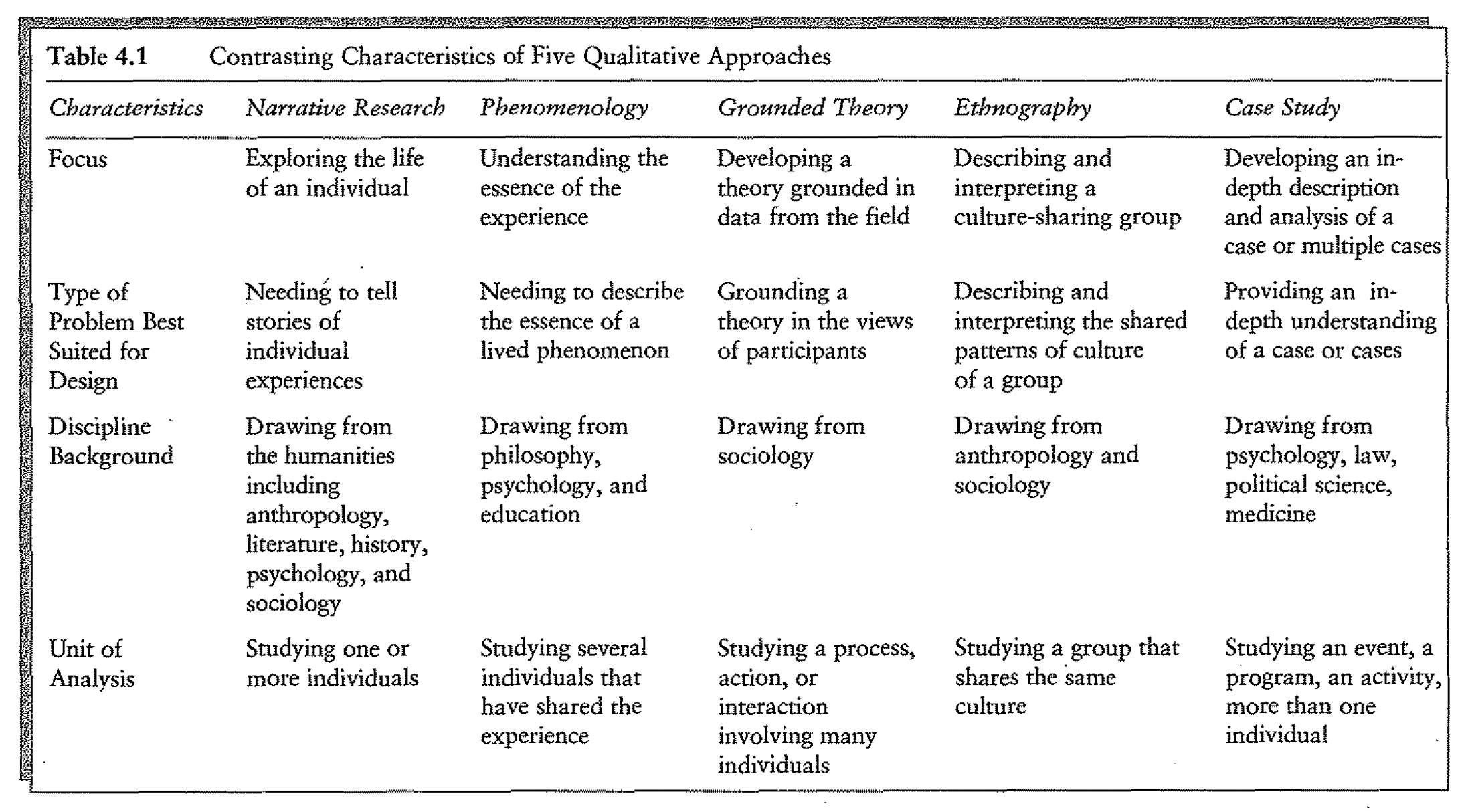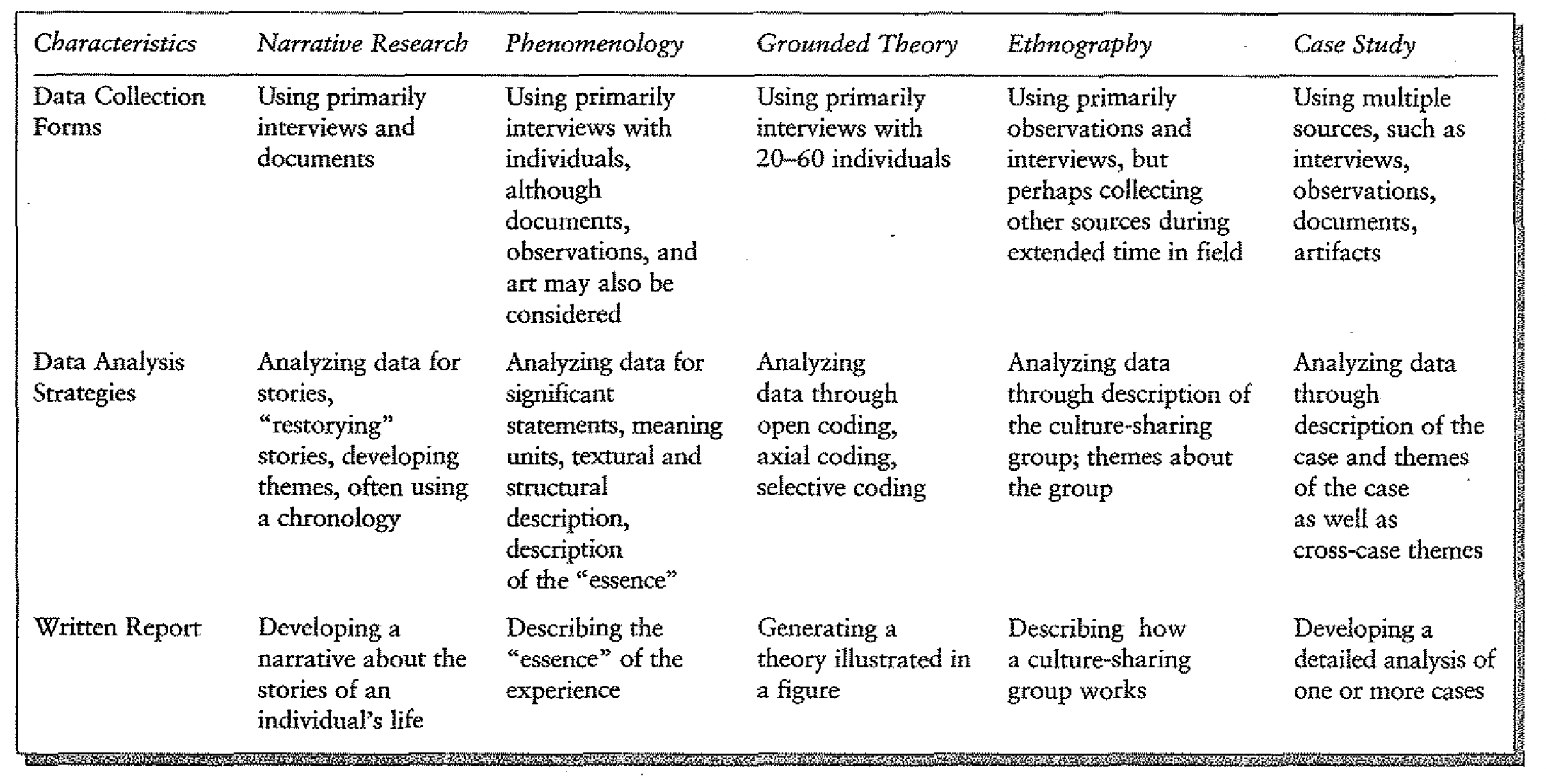Qualitative research for social science
In qualitative research, researchers use inductive logic to study the topic within its political, social and cultural context, involving an interpretive approach to the world, and developing a holistic account of the problem under study. Qualitative research seeks to understand a research problem from the perspectives of the subject rather than the researcher. Researchers see reality as being subjective and multiple, as seen by the subjects; values and biases are recognized and openly discussed (Creswell, 2007, p. 16-19, 23-24, 36-39; Mack et al., 2005, p. 3-4).
Qualitative research requires a strong committment, demanding of time in the field and analyzing the data. When collecting data, researchers often ask open questions; participants’ responses may in turn shape the questions asked by the researchers. When analyzing data, researchers work through multiple levels of abstraction, starting with the raw data and forming larger themes, or categories; researchers do not always know clearly which stage they are in the process (Creswell, 2007, p. 41-45).
Forms of qualitative information include interviews (including in-depth interviews and focus groups), observations (including particpant and nonparticipant observations), documents, and audiovisual materials (Creswell, 2007, p. 40-41, 129-130; Patton, 2002, p. 4).
Why qualitative?
Qualitative research is most effective in studying the behaviors, beliefs, opinions, emotions, and relationships of individuals, and the social contexts of particular populations, including social norms, socioeconomic status, gender roles, ethnicity, and religion (Mack et al., 2005, p. 1).
Qualitative approaches are useful in exploratory research. Qualitative research is also useful when we need details, where the open-ended questions allow participants to respond more freely and in greater detail and depth than is typically the case with quantitative methods. Additionally, qualitative research is useful when combined with quantitative research, or when quantitative research does not fit the problem under study (Mack et al., 2005, p. 3-4; Creswell, 2007, p. 39-41; Patton, 2002, p. 14).
Is qualitative research scientific?
Qualitative research is scientific. It starts with a question and seeks answers to it; it uses a predefined set of procedures to answer the question; it gathers data and collects evidence; and it produces findings in a report (Mack et al., 2005, p. 1; Creswell, 2007, p. 41).
Qualitative research is flexible. However, the degree of flexibility among methods used in qualitative research is not an indication of how scientifically rigorous a method is. Rather, it reflects the kind of understanding of the problem that is being pursued using the method (Mack et al., 2005, p. 4).
How is qualitative research different from quantitative research?

(Table from Mack et al., 2005, p. 3)
Perspectives and approaches of qualitative research
There are various views on qualitative research and multiple approaches towards it.
In this workshop, we take the grounded theory approach. We will discuss this approach in more depth in the QDA section.


(Table from Creswell, 2007, p. 78-79)
Reference
Creswell, J. W. (2007). Qualitative inquiry and research design: Choosing among five approaches. Sage publications.
Deterding, N. M., & Waters, M. C. (2021). Flexible coding of in-depth interviews: A twenty-first-century approach. Sociological methods & research, 50(2), 708-739.
Mack, N., Woodsong, C., MacQueen, K., Guest, G., & Namey E. (2005). Qualitative research methods: A data collector’s field guide. Family Health International.
Patton, M. Q. (2002). Qualitative research and evaluation methods. Sage publications.